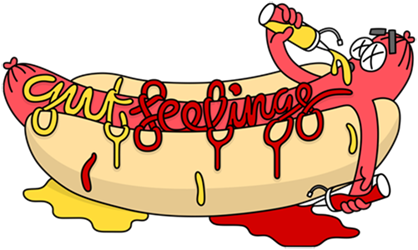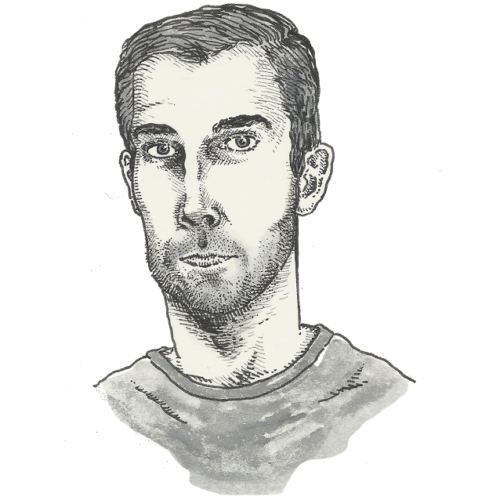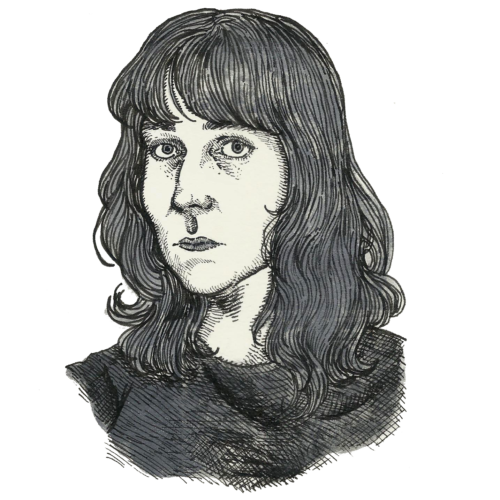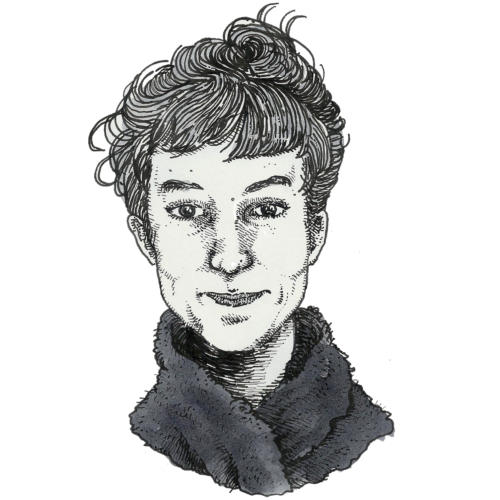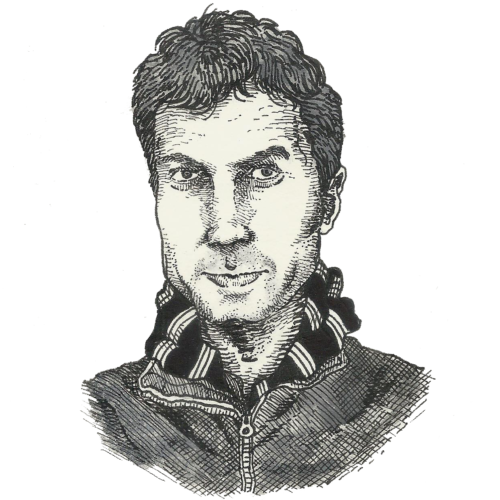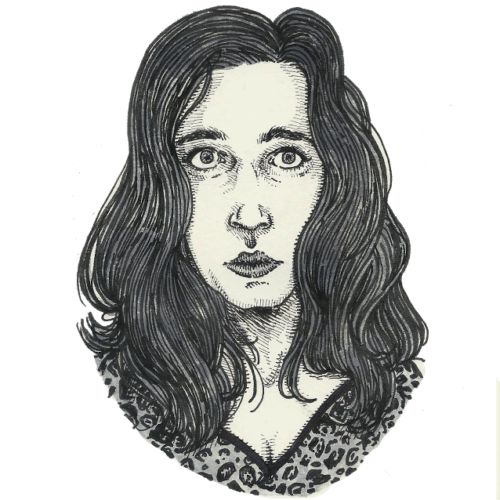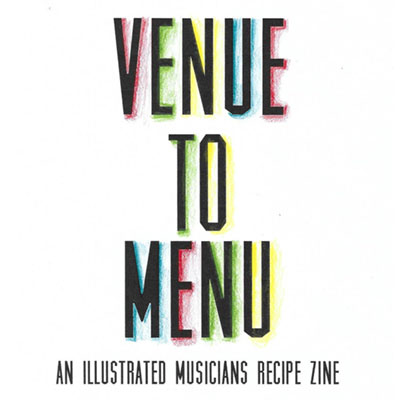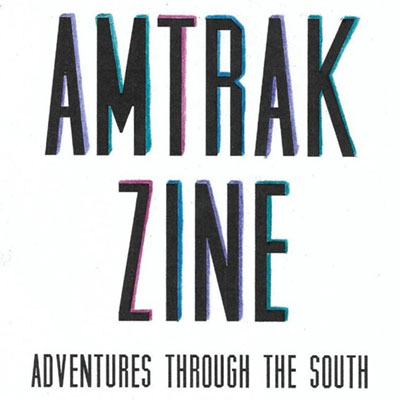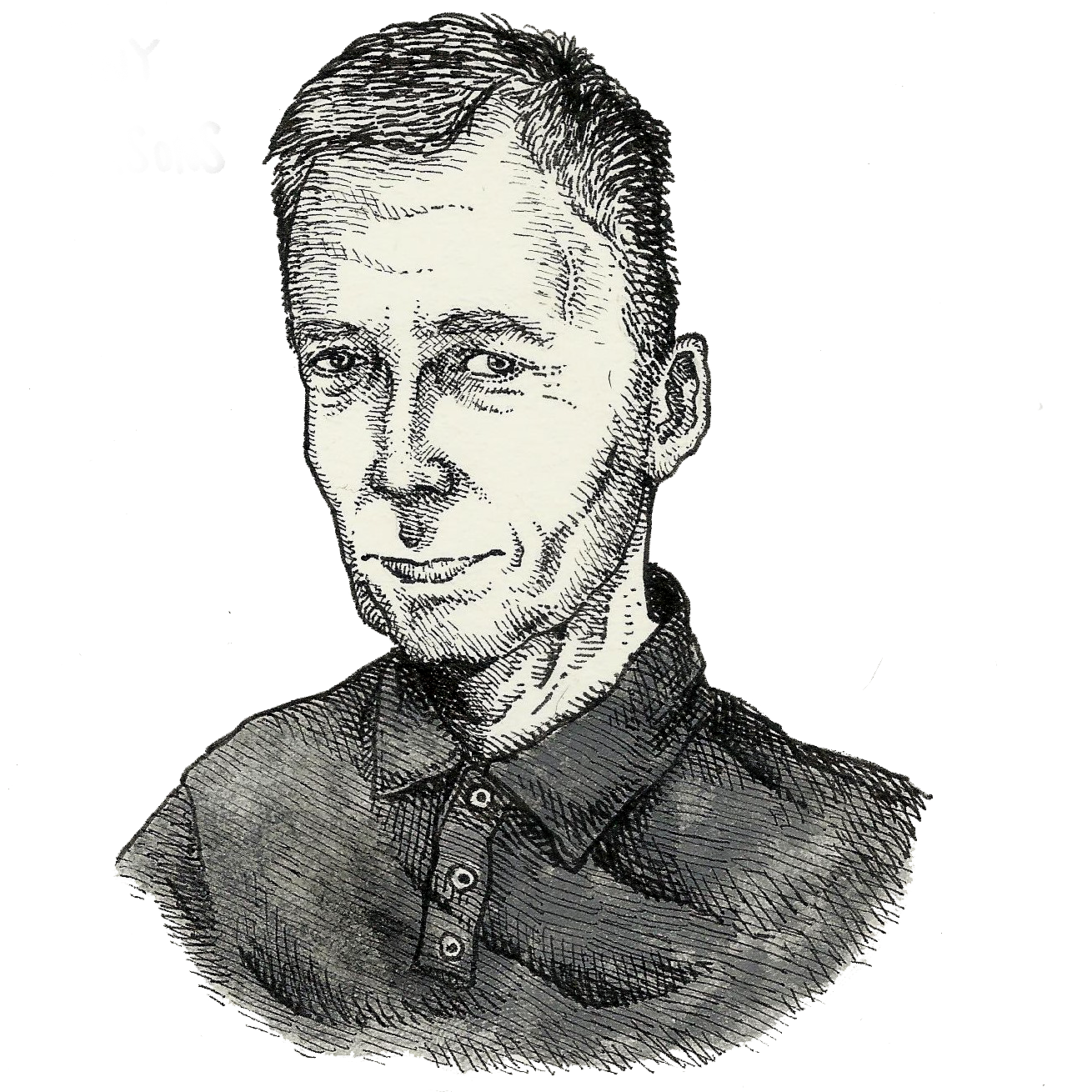
Illustration by Fabio Vermelho
Tony Parsons is a British author and journalist who began his career writing about punk music for the NME and has since written a whole bunch of fantastic best-selling novels and newspaper columns. But I’m sure you know all this already. His most recent novel (and my most favourite) The Hanging Club is terrifying and dark and I couldn’t recommend it enough. If you don’t know about DC Max Wolfe then you should really get to know him. You can get all of his things here or even better, go to an actual bookshop and stock the hell up. Tony was kind enough to participate in our Brain Map series and the result was another beautiful interview of wise and thoughtful answers. Hope you enjoy.
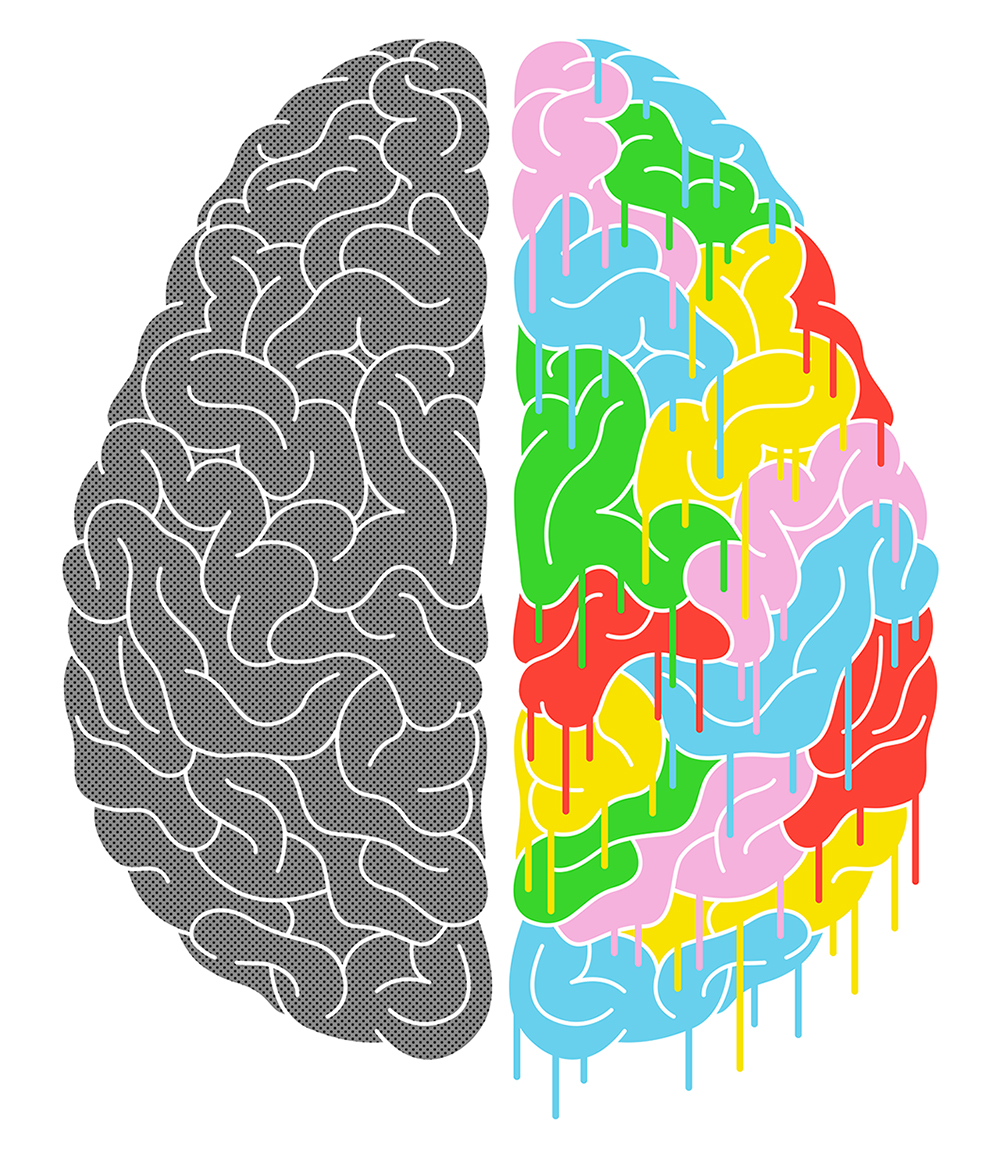
Illustration by Tim Easley
1. Do you actively do anything to keep your brain healthy, and if so what?
I learn a foreign language (Japanese), which is like burpies for the brain.
2. What or who mentally stimulates your growth the most?
I think nothing stimulates my growth like conversations with my 14-year-old daughter as she learns, grows, and finds her place in the world.
3. If you could add or take away anything from your brain what would it be?
Doubt
Frontal Lobe
4. Are you more emotion or reason based when making decisions?
The emotion comes first but then it is simmered with reason. You need both.
5. In what situations have you learned the most about yourself?
I think when I have been unexpectedly kicked in the teeth – losing a job, or a lover, or facing family illness. Crisis, in a word.
6. Do you think you have to learn good judgement? (Are people inherently self destructive?)
We all make huge, life-rending mistakes (about our education, about drugs, about who we go to bed with and marry) and the wisdom comes in surviving our own mistakes. We are inherently self-destructive but only because we are inherently inexperienced.
7. Do you have any daily or annual rituals? Are they personal to you or your family or are they related to your culture or religion?
My life is all ritual. Walk the dog. Take my daughter to school. Write 1000 words. Read 50 pages. Exercise. Eat sensibly. If I am not travelling, then it runs like clockwork. Then there are the annual rituals – traditional Christmas, Japan for the cherry blossoms, Hong Kong once a year to see my oldest friends. A lack of rituals leads to unhappiness.
8. Can you speak any other languages, and if so why that language?
Learning Japanese for 25 years – can understand a lot but read nothing. It’s hard when a language has 3 alphabets. And I passed my French GCSE two years early but I don’t consider myself to have any French at all.
9. If you could live inside of a book, which one would it be?
The Secret History by Donna Tartt –part of a gang of murdering over-educated geniuses on the run from the law and their destiny. Such a beautiful book about friendship.
10. Are there particular books you find yourself buying for or lending to people close to you?
I will buy a copy of a book that I love for people. Nic Pizzolatto (who wrote True Detective for TV) wrote a terrific crime novel called Galveston and I must have given away ten copies of that book, because nobody thinks of him as a novelist even if they loved True Detective. But if I love a book, and I love you, then it is right and proper I should give you a copy of that book.
11. Is it more important for you to speak or to be heard?
For any writer, it is more important to write than to speak or be heard. So I guess speaking, although writing is a peculiar and selfish form of speech.
12. Do you think a time exists that is easiest to create? For instance, do you strike the muse or does the muse strike you?
The earlier the better. Before the world intrudes. Only laziness stops me from beginning at 5 am every day.
13. Do you have an emotional state that you find it easier to create in?
Yes – calm, focused, left alone by the world. You can’t create with any distractions.
14. Are there certain elements that you employ to set up the perfect mental space for creating? For example: Music/Food/Smells/Locations.
No, because that is all resistance. That is all prevaricating, that is all putting it off. Don’t prepare – begin.
15. Do you think you have to have an elevated ego to be an artist?
Yes. It definitely helps if your mother sat you on her knee and read you stories until you fell asleep.
Parietal Lobe
16. What smells do you most associate with your childhood?
The sea. Bacon. Cigarettes. Beer. Petrol. Dog shit. My mother’s Chanel Number 5. My father’s Old Holborn tobacco. Fish. Chips. Sweet and sour pork.
17. If you could only live on five ingredients for the rest of the life, what would they be?
Toast. Water. Cheese. And more caffeine.
18. Do you have spiritual needs and if so how do you nourish them?
I have a dwindling belief in religion, but I am always, always comforted when I am in a church – or a Shinto shrine, or a Buddhist temple.
19. Do you have a place you go to, either physically or mentally, where you feel the most at peace?
I am most at peace when I am walking my dog and we are in nature and there is no need to say a thing as we watch the seasons and our time on this planet pass by.
20. Do you think that people need some form of discomfort to make art?
I think discomfort kills art because poverty, illness or unhappiness is so time consuming. Paradoxically, I think it helps to have experienced hard times – a few years working in low skilled, low paid jobs, say, or surviving an unhappy relationship because it toughens you up. And you have to be mentally and physically tough to produce anything.
21. Are you more motivated by the promise of reward or the threat of punishment?
I feel that I was put here to work and that I will be punished if I do not work and rewarded if I do. But I do it for the carrot rather than the stick.
22. How much does your conscience/morals come into play when making decisions?
It doesn’t.
23. Do you ever experience your emotions in physical ways? If so, how?
When I was younger I could be overwhelmed by anger but that fades as you get older. You realize the brick wall doesn’t actually care if you punch it.
24. What is your least favourite physical sensation?
I don’t like being confined.
25. What is your favourite physical sensation?
I like to feel free. Physically, mentally, financially – as free as possible.
Temporal Lobe
26. Do you think a person has to understand art in order to be able to appreciate it?
I think if you appreciate it, then you understand it. I don’t believe in a canon. There are great names that will do nothing for you and you need to understand that is okay.
27. Do you connect more to the lyrics or music in songs (assuming a song has both!)?
The magic is in the music.
28. What is your earliest memory?
I remember almost being hit by a car as I crossed a zebra crossing alone, aged 4, back in the century when it was quite common for 4 year olds to roam the streets alone.
29. If you got alzheimers or dementia what memory or memories would you be saddest to lose – or – which ones would cause the biggest loss of your personal identity?
It would be saddest to lose the memory of the people I loved – and who loved me. But the biggest loss to my personal identity would be losing the ability to write – or even the memory that I am a writer – because I think we are largely defined by the work we do.
30. Do you expect happiness in your life?
I feel that happiness is fleeting, and exists in the moment, and it is there in the light in a dog’s eye or a child’s laugh or seeing your book go into the bestseller list – but I expect happiness to be fleeting, to come and go, and I don’t believe that it will come if I get a certain job/car/lover. Happiness is what we experience on the journey, it is not the destination.
31. Do you feel like falling in love is a spiritual or chemical process?
I feel that falling in love is about timing, more than anything. More chemical than spiritual, I guess, but timing is what it is all about – there are lots of people you could love if you met them at the right moment.
32. Do you try and avoid feeling negative emotions or do you feel it is more constructive to experience your emotions fully?
I try to avoid the negative because I feel it is a form of self-harm. You have to acknowledge your emotions but you can’t let them off the leash and allowed to run wild.
33. What flaws do you think you have when it comes to communicating with other people?
I think I’m quite shy. I think that anyone who communicates with words, pictures, music, anything prefers to express themselves in that form. I never met an artist who was wonderful at social interaction. I can fake it quite well.
34. How do you deal with situations or individuals that fail to stimulate you creatively or emotionally?
Do you avoid this situations/have a set of tools in which to navigate them? I try not to put myself into situations that I am not going to enjoy. The dreadful dinner party is the province of the young. As you get older – I am 62 now – you tend to stick to what and who you like, and avoid the rest like the plague.
35. What do you think your ex partners would say the hardest thing about loving you was?
That I never believed they were the love of my life.
Occipital Lobe
36. Do you have any recurring dreams or nightmares?
If so, what do you think they mean? Lots of dreams but none of them recurring – I think they are all symptoms of anxiety about work/ family/ health – the usual stuff that plagues us until our dying day.
37. If you have ever taken psychedelic drugs, did you have any interesting hallucinations on them?
Do you feel changed from having taken them? When I was a young music journalist we often used to stay up for three days and nights in a row and if you do that, then the amphetamine sulphate we took could sometimes turn to pure mescaline in your liver. That happened to me on a couple of occasions. One time I saw an ocean liner parked in a suburban street. And another time I saw a sparrow, which was jiving. Both of them seem totally and undeniably real. I can see them now – the ocean liner in the street and the dancing sparrow.
38. Do you find your mood affected by different colour palettes?
There was a boxer whose corner men wore red when his coach wanted him to fight and aggressive fight, and blue when his coach wanted him to be cool, careful defensive. I understand that but it is yellow – optimistic, bright, hopeful yellow – that makes me smile like a young buttercup on the first day of spring.
39. If you could live in a world where the aesthetic was controlled by a particular visual artist or film director, who would you choose?
I’ll go for Akira Kurosawa, who saw the epic beauty in the everyday. And it rains a lot in his films. I like the rain.
40. What’s the most unbelievable thing you’ve ever seen?
At the London 2012 Olympics I was there on the first day of the athletics and saw a man who had both his legs amputated before his first birthday race against the finest able-bodied athletes on the planet. And even though Oscar Pistorius is now in jail for murder, I can’t deny how totally mind-warping it was to see a man with no legs race against world-class athletes.
41. Have you ever seen something which you feel has directly resulted in certain elements of your personality today?
My father’s torso was covered with scar tissue from a German grenade and I was shocked every time he took his shirt off. His bravery, his sacrifice, his stoicism – that was all there in his horribly scarred torso, and I think it had more impact on who I am than anything else. My father’s scarred body said – this is a man and this is what you have to try to be.
42. Would you rather lose your sight or your hearing?
Hearing, please.
43. Do you feel like you surround yourself with the people who see you for who you really are?
Sounds like Hell!
